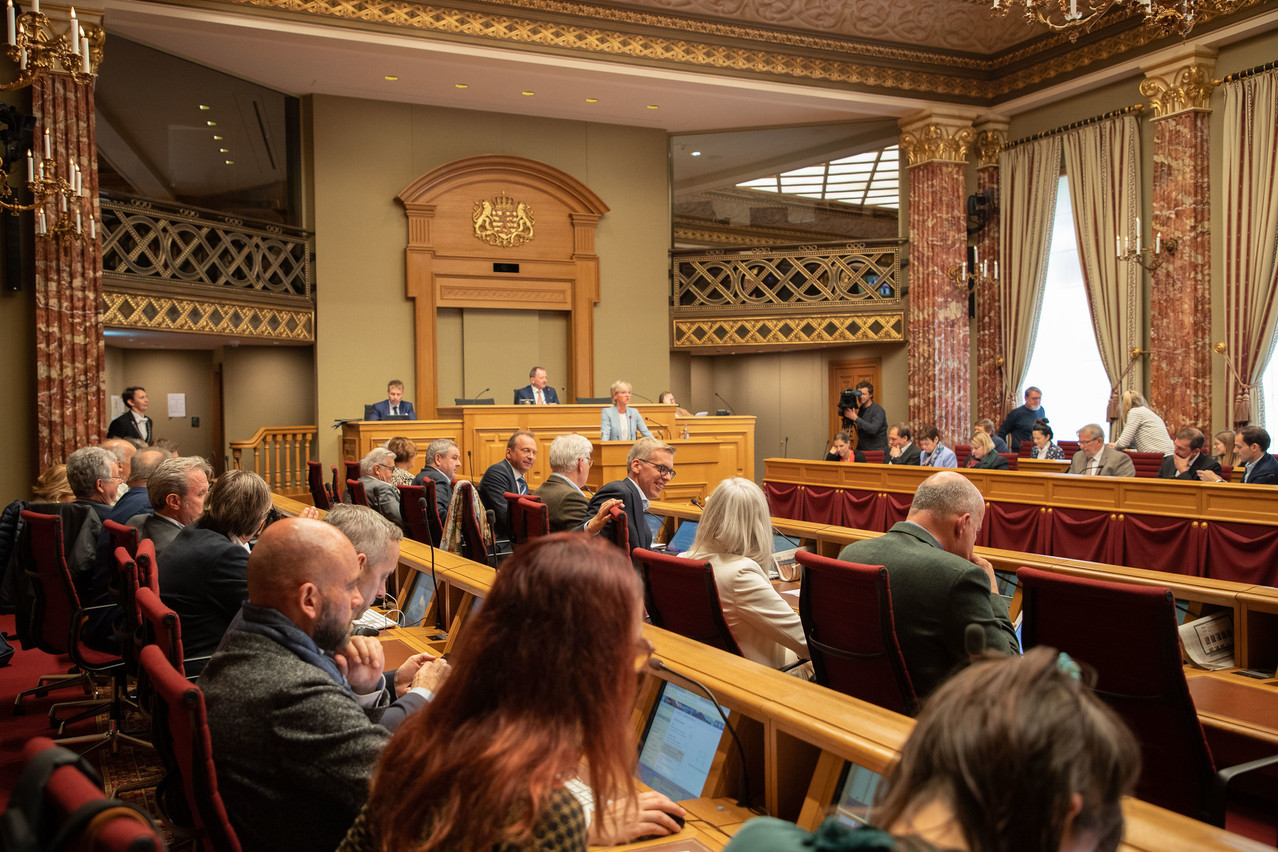After the State of the Nation speech by prime minister (DP) and the tabling of the budget by finance minister (DP), it was the members of parliament that took the floor on 12 October.
This was the last State of the Nation debate before the 2023 elections. But unlike the debate on tax reform in July, when the majority parties showed their differences, this time the coalition was united.
The three parties were keen to defend their record after five years in office. For them, the government has made the right choices in the face of repeated crises and is pleased to have maintained unity thanks to a social dialogue that still works.
Do good and talk about it
“Do good and talk about it” was the phrase of the day for DP parliamentary group chairman , who recalled the massive investments made since the beginning of the pandemic: €5.5bn spent between the first measures announced during lockdown and the two tripartite agreements signed to manage the energy crisis. “Times of crisis are not an occasion for an austerity policy,” he said.
From short-time working to targeted compensation for deferred indexation to the energy price cap, Baum recalled the history of the measures put in place: “It is important to mention these measures, because many people want to forget them,” he said.
However, the DP deputy recalled his party's central theme: no public debt in excess of 30% of GDP, no inheritance tax in direct line, no wealth tax and no taxing the rich to give to the poor.
Unbalanced tax burden
The leader of the LSAP parliamentary group, , praised the “healthy public finances”, which have allowed investments to counter the effects of the crisis. He expressed concern that the tax burden is increasingly being borne by individuals, who now bear a much higher tax burden than companies--an imbalance that is due in particular to the failure to adjust the income tax scale.
A wide-ranging tax reform is therefore necessary, but in view of the pessimistic economic outlook unveiled by Backes, it will have to be done “in stages”. Cruchten has for the moment welcomed the measures announced by the finance minister, which, he said, take up some of those proposed by the LSAP.
Health on the agenda
Health was at the centre of the concerns of the governing parties, with staff shortages, resignations and excessive waiting times. Cruchten was keen to point out that the health ministry is not inactive but that these problems “cannot be solved overnight”. The LSAP MP was especially keen to defend the record of a ministry that has been under the responsibility of the LSAP since 2004. “The covid crisis was well managed, also because our public health system was well run beforehand,” he said.
Déi Gréng member of parliament also addressed the issue of health, recalling, as at the press conference of her fraction, the need to enshrine in law the principle of universal health care coverage or the reimbursement of psychotherapy. She also addressed the issues of housing and the risk of poverty, both of which are growing in Luxembourg.
But the parliamentary group's chairwoman did not fail to mention the issue of the climate crisis, welcoming the investments in renewable energies which have exploded but recalling at the same time the need to take new measures and even to accelerate on the subject.
On the opposition side, the CSV did not spare the majority. MP criticised the management of the rising public debt, the lack of tax reform, the "impasse" on health and the lack of ambition on housing, which is “the number one problem”. In general, “blue-red-green have not been able to solve the problems”, she said. “The situation in the country has deteriorated and is now difficult for the population, families and businesses.”
MEP (Déi Lénk) described a government “without a common analysis, where everyone is doing their own thing” and which is managing in the short term, “without solving the structural problems" such as dependence on fossil fuels or social inequalities. The consequences: a “more individualistic society”, where “a minority uses the work of the majority”, where “taxation means that capital accumulation is rewarded”, “nature is subjected to profit” and “the basis of future generations is destroyed”.
of the Piratepartei initially welcomed a number of government announcements, such as photovoltaic installations on every roof of a new building. “There are a lot of good proposals at first sight,” he said. “But when? There are no dates,” he added. For the MP, these measures are not enough anyway, while on many subjects--housing, climate, social--time is running out.
For 's (ADR) the world is in a “difficult“ situation because of a “fabricated” shortage, caused by the sanctions introduced against Russia. “Other decisions would have had better results,” he said, without elaborating. He also referenced Déi Gréng’s policy, calling it “an illusion” said the party's security policy has led to “people being more afraid than ever since the Greens came to power”.
This story was first published in French on Paperjam. It has been translated and edited for Delano.
